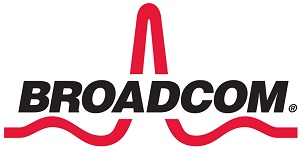Broadcom Brings HEVC to Satellite Set-Tops
The smarter way to stay on top of the multichannel video marketplace. Sign up below.
You are now subscribed
Your newsletter sign-up was successful

Las Vegas -- International CES -- Mirroring what it’s already done in the cable and IPTV set-top world, Broadcom on Tuesday launched two chipsets – the BCM7364 and the BCM7399 -- that support the High Efficiency Video Codec (HEVC) in boxes for satellite TV services.
HEVC, which is about 50% more efficient than MPEG-4/MPEG-2, is becoming a cornerstone technology for service provider 4K Ultra HD strategies.
HEVC is also expected to become a go-to codec for video that is delivered over cellular services that are typically paired with bandwidth-usage limits, Rich Nelson, SVP of marketing for Broadcom’s Broadband Communications Group, said.
Broadcom said its new chips enable 10-bit HEVC decode at 60 frames per second.
The new chipsets, currently available for sampling, also support HDMI 2.0 and integrated MoCA 2.0 for high-speed networking over home coax lines, the company said.
Broadcom launched similar HEVC-optimized chips for cable boxes at last June’s cable show, and for IPTV set-tops at the IBC confab in Amsterdam last fall.
Nelson said 2013 was a “good development year for solidifying [HEVC] technology.” This year, he said, will be marked by more interoperability with video encoding manufacturers, enabling HEVC to reach a “new state of readiness.”
The smarter way to stay on top of the multichannel video marketplace. Sign up below.
HEVC, however, won’t be the only codec used for 4K video. YouTube, for example, is demonstrating 4K streaming here this week using VP9, a Google-backed, royalty-free video codec that claims to be as bandwidth-efficient as HEVC. YouTube has already lined up Broadcom and other vendors for its 4K/VP9 demos.
Broadcom isn’t betting all its chips on one encoding technology.
“Broadcom believes both technologies can live with some level of harmony, but we’re not predicting if one or the other will win out. Our customers will decide which they want to implement and we’ll respond accordingly,” the company said in a statement about recent HEVC and VP9 market developments.
